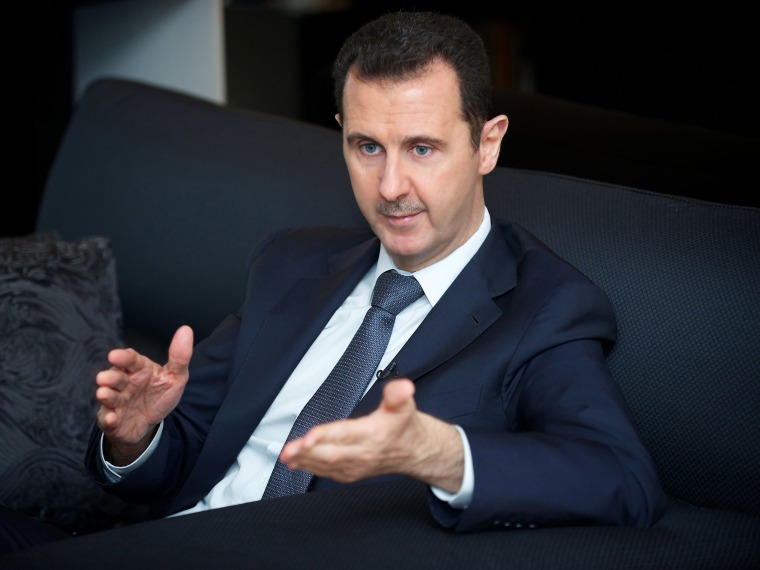Syrian President Bashar al-Assad has carefully reworked his public image over the last year through social media to combat the narrative he says the West is pushing in order to justify military intervention.
Since August 26, the official Twitter account for the Presidency of the Syrian Arab Republic has consistently tweeted quotes, in both English and Arabic, from Assad's recent interviews that portray the Syrian leader as a reasonable peacekeeper whose only interest is to protect his country from the United States.
#Assad: “America has waged many wars, but has never been able to achieve its political objectives from any of them.”— Syrian Presidency (@Presidency_Sy) August 26, 2013
The propaganda is nothing new for @Presidency_Sy: since the account was opened in April, the majority of the tweets have been aimed at defending Assad's actions, and blaming the West for the world's instability. "The West has paid heavily for funding Al-Qaeda in its early stages," an early tweet, that was also posted to Facebook, read. "Today it is doing the same in Syria, Libya and other places, and will pay a heavy price in the heart of Europe and the United States."
In an interview earlier this week with the French newspaper Le Figaro, Assad pushed back on the accusations that his forces used chemical weapons against civilians. "If Obama was strong, he would have stood up and said that there is no evidence that the Syrian government used chemical weapons, he would have stood up and said that the right way forward is to wait for the results of the UN investigations and work through the UN Security Council," Assad said. "However, as I see it, he is weak because he succumbed to internal pressure and threatened military action."
Assad went on to compare his regime's use of force to other countries' actions against its own people, including the deployment of Los Angeles Police Department officers during the 1992 riots in southern California.
"There is an analogy that can also be asked here: how could France allow the killing of the terrorists who terrified French citizens? How did the British deal with the riots in Britain last year? Why was the army deployed in Los Angeles in the nineties? Why are other countries allowed to fight terrorism and Syria isn’t?" Assad asked—a statement he reiterated on his Instagram account after the interview, but has since deleted.
As Assad confronts a possible U.S. military strike, the Syrian Presidency Instagram account, which we reported on last month, continues to promote a harmonious image of the Assad regime—from smiling supporters to well-dressed children performing community service. The most recent photos posted to Instagram show First Lady Asma al-Assad congratulating some of Syria's top students over the past several days, according to the Syrian Presidency Facebook page.
All of the accounts used to promote Assad's leadership, including a YouTube account opened in January, are clearly targeted at the outside world, seeing as how less than a quarter of the Syrian population are internet users.
